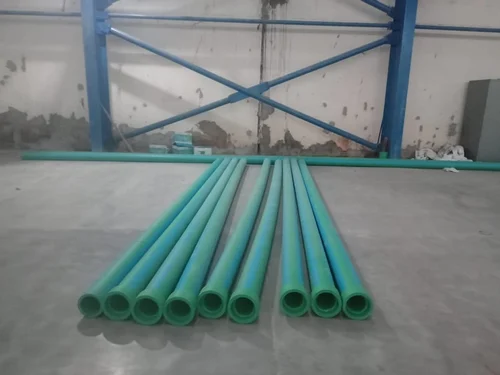PPR (Polypropylene Random Copolymer) pipes ASTM F2389 are highly regarded for their use in hot water systems due to their excellent temperature resistance, durability, and non-corrosive properties. These pipes are specifically designed to transport hot water in residential, commercial, and industrial plumbing systems.
Key Features of PPR Hot Water Pipes
- Temperature Resistance
PPR hot water pipes can withstand temperatures up to 95°C (203°F), making them ideal for distribution systems. Their material structure ensures stability and strength even under prolonged exposure to high temperatures. - Pressure Resistance
These pipes are highly resistant to pressure, making them suitable for both domestic and industrial hot water supply systems. They maintain their integrity even under high pressure, which is essential for systems like central heating or hot water circulation. - Corrosion and Scale Resistance
Unlike metal pipes, PPR pipes are resistant to corrosion and scaling. This ensures that the pipes have a long service life, free from mineral buildup or rusting, which can degrade water quality and reduce efficiency. - Non-Toxic and Safe for Drinking Water
PPR pipes are non-toxic and do not release harmful substances into the water, making them safe for transporting drinking water. This is a key advantage for systems where hot water is used for bathing, cleaning, or food-related applications. - Heat Insulation
have low thermal conductivity, which minimizes heat loss during the transportation of. This improves energy efficiency, reduces heat wastage, and lowers overall heating costs. - Long Lifespan
With a lifespan of over 50 years under normal conditions, offer excellent long-term performance and reliability. Their durability makes them a cost-effective choice for any hot water system.

Installation and Connection
are connected using a heat fusion process. This involves heating both the pipe and the fitting to a specific temperature, then joining them together. The result is a secure, leak-free connection that becomes as strong as the pipe itself.
Applications of PPR Hot Water Pipes
- Residential hot water supply systems
- Central heating and radiator systems
- Underfloor heating
- Industrial hot water transportation
- Solar water heating systems
Conclusion
PPR hot water pipes are an excellent choice for any application requiring the safe and efficient transport of hot water. Their high-temperature resistance, durability, and ease of installation make them a preferred solution in modern plumbing systems.

















